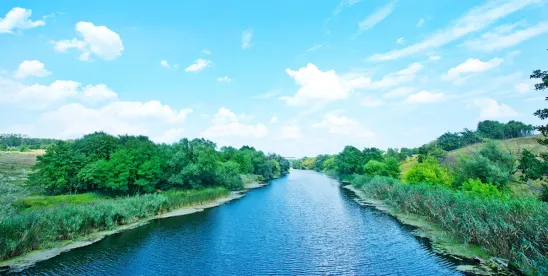Colorado authorities recently published proposed regulations that will have major implications for construction and development projects that impact state waters. The regulations establish a permitting system for projects that discharge (or have the potential to discharge) dredge and fill material into waters over which the state has jurisdiction. In response to the U.S. Supreme Court’s 2023 decision in Sackett v. EPA, which limited the scope of the federal government’s jurisdiction over waters and wetlands under the Clean Water Act, the Colorado legislature enacted House Bill (HB) 24-1379 (25-8-205 C.R.S.) on May 30, 2024. The legislation is among the first in the U.S. to address the regulatory rollback of federal wetland protections under Sackett and will likely serve as a model for other states looking to take similar action. HB 24-1379 provides a framework to protect state waters from the impacts of dredge and fill activity by instructing the Colorado Department of Public Health and Environment (CDPHE) to craft rules establishing a permitting program by December 31, 2025. Pursuant to the mandate in HB 24-1379, CDPHE issued its initial draft regulations – known as Regulation No. 87 – in early December and has initiated a seven-month public process to seek input and comment on the proposed rules from stakeholders.
The proposed regulations are applicable to Colorado's “State Waters,” which include any and all surface and subsurface waters that are contained in or flow in or through Colorado. The regulations will also apply to “isolated wetlands, ponds and impoundments,” which is an expansion of the waters covered under Sackett. Per the Sackett decision, the federal government only has jurisdiction over wetlands or other features that have a continuous surface connection to traditional navigable waters such as streams, rivers and lakes. Under the Colorado rule, the state will have jurisdiction over isolated waters that lack a continuous surface connection, making the Colorado scheme broader than the federal permitting program.
The federal government retains jurisdiction over “Waters of the U.S.” or “WOTUS,” which include interstate rivers, streams, lakes or other navigable waterways. Permits for projects that impact federal WOTUS will continue to be issued by the U.S. Army Corps of Engineers under Section 404 of the Clean Water Act. Now, under the regulations proposed by CDPHE, a separate permit may be required for projects that also impact State Waters.
The proposed Colorado permitting scheme closely resembles the federal program in that CDPHE will develop general permits – akin to Nationwide Permits issued by the federal government - for categories of activities that are similar in nature and impact 0.10-acres or less of state waters. For projects that impact more than 0.10-acres of State Waters, an individual permit will be required. Under the proposed regulations, CDPHE will have two years to act on an application for an individual permit. Also, any State Water impacts authorized by an individual permit will require compensatory mitigation to restore or replace State Waters. Individual permit applications will also require a consideration of “practicable alternatives,” i.e., potential alternatives to disturbing State Waters after taking into consideration cost, existing technology and logistics in light of the overall project purpose.
The regulations are not final, however, and opportunities exist for developers and other interested parties to influence the rulemaking process. CDPHE has outlined the following key dates for stakeholder involvement:
- CDPHE is holding monthly meetings until regulations are complete, with the next meeting scheduled for January 28, 2025, and occurring monthly thereafter through November 19, 2025
- CDPHE is accepting stakeholder feedback to be discussed at the next meeting until January 13, 2025; Stakeholders have two weeks after each meeting to submit feedback
- CDPHE anticipates submitting a proposal on Regulation 87 to the Water Quality Commission in July 2025
- The formal rulemaking process is expected to begin in August 2025
- CDPHE will continue discussions with stakeholders to fine-tune the proposal from August 2025 through the formal prehearing submittals.
More information is available at CDPHE’s website, including links to register to attend public meetings and comment on the proposed rules. Participating in the rulemaking process by submitting comments and attending public meetings is the most effective way for stakeholders to influence the proposed regulations.




 />i
/>i
